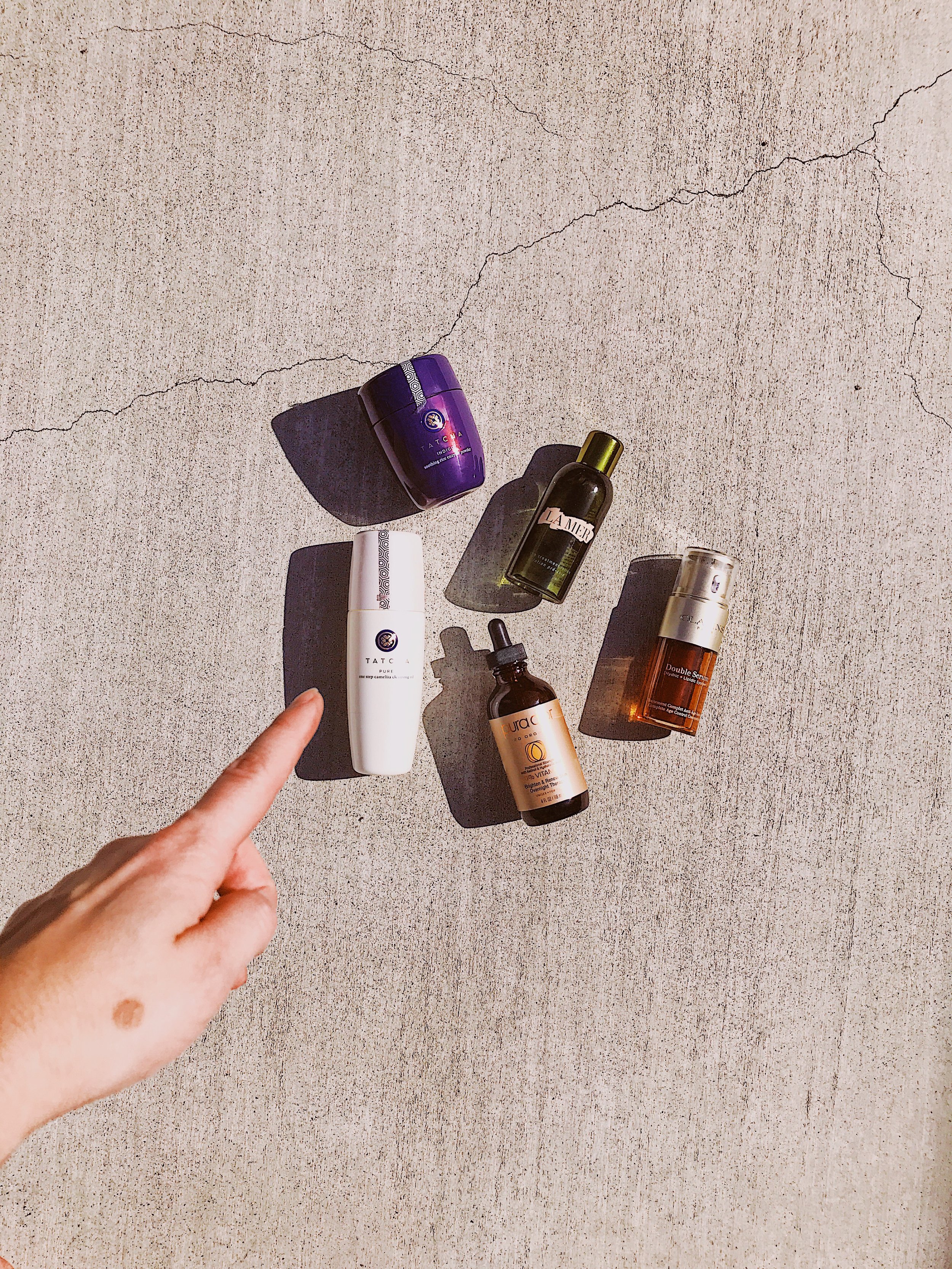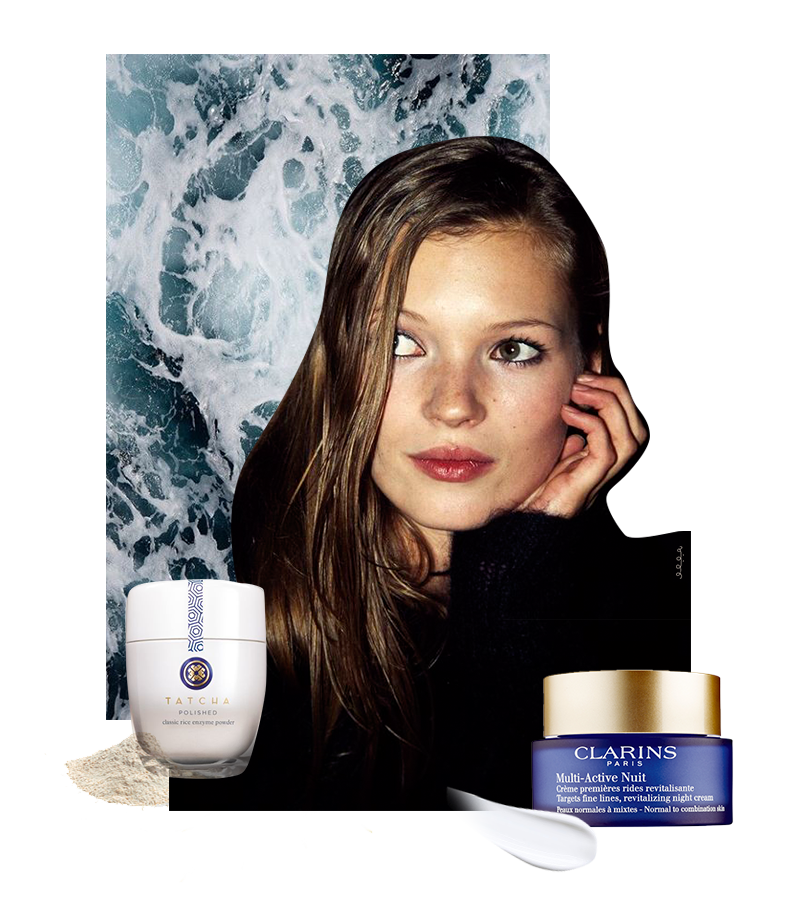"Wear SPF every day."
That is the official recommendation from dermatologists and doctors that even cloudy days have skin-damaging UV potential, so use sun protection. Since my teens I have been using SPF in some form or another on a daily basis — a hat, lotion, sunglasses, long sleeves during peak summer hours. Plus, it's in my makeup, my face lotion, and even my lip colors. I think it's safe to say SPF is a good and established part of my skin routine right now and I have trusty list of products I use to help me stay UV protected.
So enter Glossier's new Invisible Shield. Two weeks ago I was sent a sample of their new face sunscreen that arrived in their famous pink Glossier packaging. Cute! Ok, open the box, see a pink plastic ziplock bag and a postcard of clever sounding copywriting about the convenience Glossier's sunblock for people who don't have time, hate the texture, hate the traditional white finish of other sunblocks, excuses, etc. Hmm, ok. I was intrigued. They claim a gel like water texture that doesn't leave any residue or tackiness so makeup loves and SPF haters can equally practice "safe sun." Cool, I can be in to that!
So I dig past the stickers that I still will never use and get to the plastic box that contains the even smaller plastic bottle of Invisible Shield. My first impression is: This is small, how much is this again?
According to the American Academy of Dermatology, SPF is for everyone, it should be water resistant, above a 30 SPF, and reapplied to exposed skin every 2 hours. For a Glossier 30 ml tube you'll pay about $1.06 per ml for just one ounce.
There are no recommendations on the quantity to use on the Invisible Shield bottle or on the Glossier site, except for "apply over your entire face." Makes sense to me as I would like me entire face to be sun protected, but given watery consistency of the product I'm guessing that the one ounce in this plastic bottle will not go very far since it's clear, comes with pump that spits out fixed quantities.
I begin to slather it on my pre-moisturized face and feel like a cooling watery gel on my face. There's no real smell that offends me here and it goes on my face very easily. It dries very quickly and I'm finished applying all over my entire face in a matter of seconds. Yay.
Now what? Am I ready for the sun? According to the label, you should apply it 15 minutes before sun exposure, so I guess the answer is yes. Problem is, I just don't feel it on my skin, which may be the entire point of it. So ok! I'm super into that, but as an avid lifelong user of more lotioney or creamy sunscreens, which can be applied evenly more easily and with confidence that I covered my entire face truly, I can't really tell If I did a good job with the Invisible Shield. I do appreciate how thin Glossier Invisible Shield feels on my face, but how do I know it's going to work?
I start looking at the ingredients.
Hmm, I don't know what any of this is, and the one ingredient that I know is in sunblock (zinc) is nowhere to be found here. Aye. I have no idea what I'm looking at. I'm no chemist! Which is normally not a problem in my daily life. I'm just a normal well-intentioned citizen looking for a sunblock that is efficient and works well in my daily routine of light use of makeup and sometimes no makeup (#feminism #YouDoYou). Having no training or background in chemistry or a solid understanding of what chemicals differentiate a good SPF with a bad one, I'm left wondering if the Glossier Invisible Shield will require sheer blind trust that it will work.
I look to their site and I find very little in terms of details. I like that they offer a list of the entire ingredients in the bottle, but again, I'm just not qualified to understand what I'm looking at. As a person who has chosen marketing as their career profession, I also can't really understand why Glossier chose to market it so willy nilly, instead of using facts from dermatologists and more compelling selling points than "leaves no residue" and that your makeup will be rad. I would have talked more about why they chose the chemicals they chose and why they avoided others. Why watery texture? What does it do? Why is this so expensive? Why not just buy Khiels or Neutrogena? Did I just get the dumbed down PR introduction to the product?
I'm a fan of the gumption behind Glossier, but there is a difference between makeup and sunscreen. Makeup is optional. Sunscreen is legit doctor recommended stuff that includes products that you rub on your skin to avoid skin cancer, wrinkles, and harmful UV rays.
Is it great to start getting more people wearing SPF? Absolutely. Is this really the best SPF to do that? I don't know. I just don't know. And my skin is too important to me to place that hope in a blind trust that it will work as promised and not react with my skin. I just need more info.






